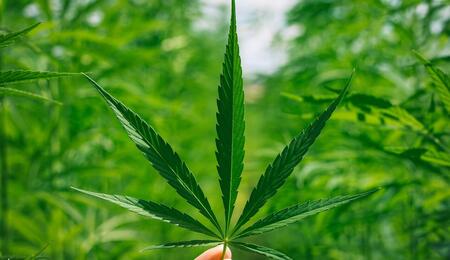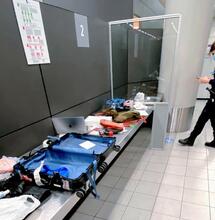What is the Cannabis Experiment?

Intervening in the cannabis market is a complex process. Preparing the ground for a legally regulated retail of cannabis products takes time. And it's a necessary step that any country that wishes to legalize has to go through. For the Netherlands, this is perhaps an even more puzzling effort, especially when considering the fact that Cannabis has been a subject of legal ambiguity for decades in this country.
Although you can freely buy weed in coffee shops around the Netherlands, under the country's current law, production and distribution of cannabis is not allowed. However, authorities have, over the years, practiced a policy of "tolerance" regarding Cannabis, meaning law enforcement has not been used for users or subjects who are part of the cannabis market.
The days of the "tolerance" policy are now counted anyway. Most people in the Netherlands believe that the old approach to regulating cannabis is not working so well anymore and that the country needs to move forward with new laws on soft drugs like cannabis. Therefore, a solution was offered a few years ago: the so-called "cannabis experiment." A proposal where the government and other stakeholders want to explore what would happen if cultivation of cannabis for recreational use becomes legal. Can controlled cannabis be legally supplied to existent coffee shops? What the effects of this would be when it comes to crime or public health and safety?
Under the rules of the "experiment," cannabis could be only sold in participating municipalities, and the cannabis grown for the purposes of the experiment must be controlled so it doesn't end up in illegal trade. Unsurprisingly, the government and the other actors in the experiment have run into all sorts of hard-to-solve issues, including securing a well-functioning track and trace system, securing safe locations for cultivation, testing, storage, waste management, all kinds of permits required by municipalities, banks not wanting to work with growers who should become legal distributors, etc.
Establishing new rules and protocols for all the components of legal cultivation has delayed the start of the experiment, initially announced in 2017. The delay has also caused a drop in the overall support for the experiment initiative.
Still, the past few months have been marked with some significant developments regarding legalization. The mayors of the cities of Breda and Tilburg have stepped forward with a proposal to implement a "start-up phase" of the cannabis experiment. Envisioned as an "experiment within the experiment," the idea is to test the system on a smaller scale before it's gradually extended to encompass other participating municipalities and cities.
The proposal from the mayors was accepted by lawmakers, with the Minister of Health, Welfare and Sports, Ernst Kuipers, announcing at the end of February that the "cannabis experiment" would start earlier in Breda and Tilburg (both cities are located in the North Brabant province in the Netherlands). It is expected that cannabis consumers will be able to begin making legal purchases in these two cities by the end of 2023.

What does the "start-up phase" or the "experiment within the experiment" means?
Several rules have been introduced and which can be replicated in other cities or municipalities that enter the experiment. The first rule is that the program can start when at least three cultivators are ready to produce legal weed, and then other growers can enter one by one in the months following the launch. The coffee shops that operate in the zones where the start-up phase is active, and the first locations are Breda and Tilburg, can voluntarily purchase legal cannabis products from legal growers and suppliers. They don't need to abandon the cultivators they are already working with. But there are some limitations. A maximum of 500 grams of legally purchased cannabis products and a maximum of 500 grams of illegally purchased cannabis products can be used in business at any given time.
The advantage of the start-up phase is that the transition from illegal to legal cannabis in the Netherlands will finally start. It will be a gradual and organic process that begins with a limited number of growers and a limited number of coffee shops, before a more significant number of operators join and the retail program goes full-scale.
But the "start-up phase" also has its flaws. A complete transition to a legal market cannot happen with such restrictions in place. One of the concerns is the limitation on the amount of legal weed that can be present at the coffee shop premises. Eventually, lawmakers must consider abandoning the idea of legal stock limitation.
Another issue might be clustering the legal retail shops in the districts that are first to participate in the experiment. There are fears that those shops as well as the cultivators with an early entrance in legal business will built much more advantage over those that join later. The policy can create competition issues that may prompt a situation where other growers, initially in the Brabant region, take legal action. A better national distribution of participating business entities into the program in the preliminary phase is therefore desirable.
Will the Cannabis experiment work?
Well, you must start from somewhere. What gives hope is that cannabis experiments in other countries have been playing out pretty well. If you only look at the legal landscape in the United States through the prism of experimenting, too.
Since Colorado became the first state to adopt legal weed in 2012, the legalization question has also become a question of experiment, or testing the powers and limits of federal law under which marijuana continues to be prohibited. All cannabis economies currently in the U.S. operate outside federal regulation. It's a matter of big experiment for this nation and one that proves to work quite well. Even with all the obstacles in place, even without access to regular banking services, legal Cannabis is holding strong, sometimes much stronger than other industries and sectors. Cannabis has continued to generate new jobs, and it has navigated through many crises.
So back to the Dutch case, there will be bumps all along the way, but eventually the legislation will settle down and the market will adapt to the new regulations that are voted in.







